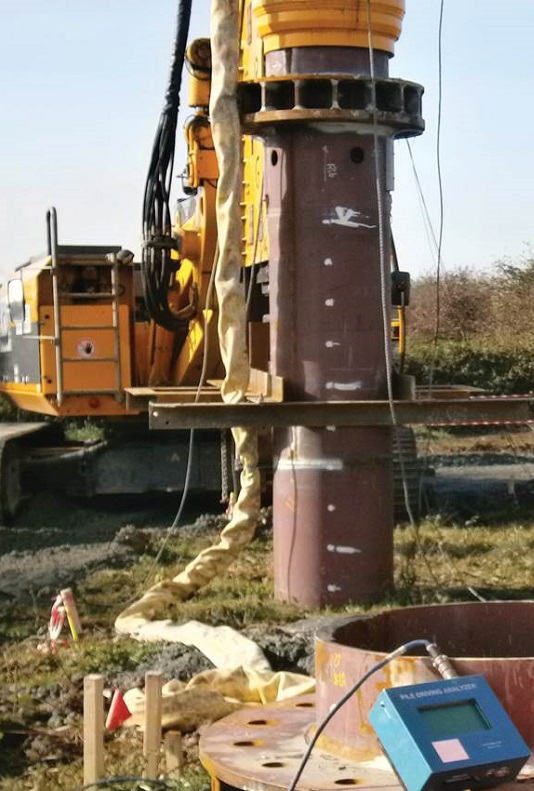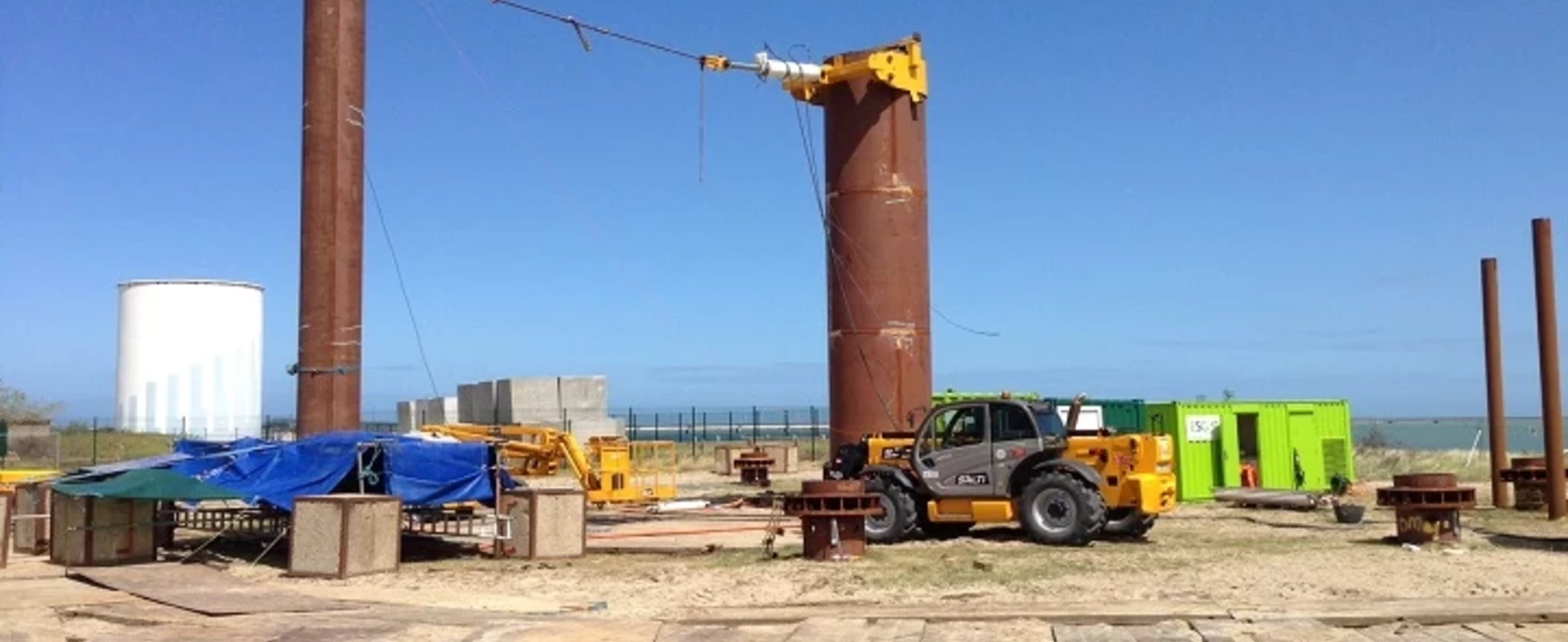In June 2014, ESG - now SOCOTEC - was commissioned by DONG Energy, Lead Project Partner, to undertake the ambitious, large scale field testing phase of the Pile Soil Analysis (PISA) project.
Summary of works
Client: DONG Energy
Start Date: June 2014

Case Study
Project details

PISA is a research project aimed at investigating and developing improved design methods for laterally loaded piles, specifically tailored to the offshore wind sector in time to be used for the development of the UK Round III projects.
It is a joint industry project run through the Carbon Trust's Offshore Wind Accelerator programme, which is made up of many high profile companies and industry representatives, with DONG being the lead partner.
The project was undertaken in two phases: the first phase developed a new design methodology, and plan of field testing required for validation. While, the second phase, which was performed by ESG, took the field testing requirements and designed and commissioned monitoring systems to deliver the parameters required. The large scale pile testing took place in 2015 at two specific sites: one a clay and the other a sand, to obtain new high quality data for laterally loaded piles.
PISA is a research project aimed at investigating and developing improved design methods for laterally loaded piles, specifically tailored to the offshore wind sector in time to be used for the development of the UK Round III projects.
It is a joint industry project run through the Carbon Trust's Offshore Wind Accelerator programme, which is made up of many high profile companies and industry representatives, with DONG being the lead partner.
The project was undertaken in two phases: the first phase developed a new design methodology, and plan of field testing required for validation. While, the second phase, which was performed by ESG, took the field testing requirements and designed and commissioned monitoring systems to deliver the parameters required. The large scale pile testing took place in 2015 at two specific sites: one a clay and the other a sand, to obtain new high quality data for laterally loaded piles.
The Project Included:
- Detailed health & safety risk assessments and methods statements ahead of the monitoring work.
- Detailed design of test rigs, including hydraulic capability, data logging and synchronisation of up to 220 separate instruments for monotonic and cyclic loading conditions.
- Working closely with structural designers, hydraulic suppliers, hardware and software specialists to make sure ESG not only had the best possible equipment for the job, but that it was also calibrated for precise measurement.
- ESG, also acted in the role of site management, ensuring the piles were installed to tight tolerances, meeting all site welfare and security guidance.
- ESG worked hand-in-hand with an academic work group appointed to provide the scientific direction and validation to the project. The academic work group was led by Oxford University, with inputs from Imperial College London and University College Dublin. An independent technical review panel was appointed to review the key deliverables from the project and to provide advice to DONG Energy and its partners on the quality of the work being undertaken. ESG’s technical site team were key participants in the daily conference calls between all parties and continually asked to push the boundaries of available technology.
By working in partnership with Dong Energy and the academic work group, ESG was able to deliver a range of pile tests that had never previously been done before worldwide. These innovative tests were carried out to an extremely high standard of quality and repeatability. Due to ESG’s technical expertise in pile testing innovation, the testing programme carried out was significantly more advanced than any of the academics involved had anticipated.




